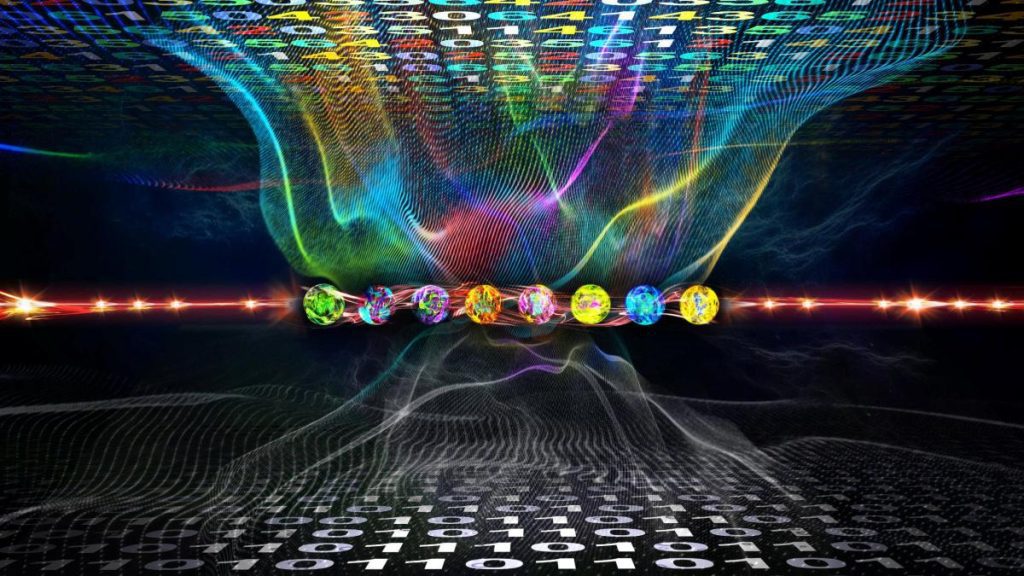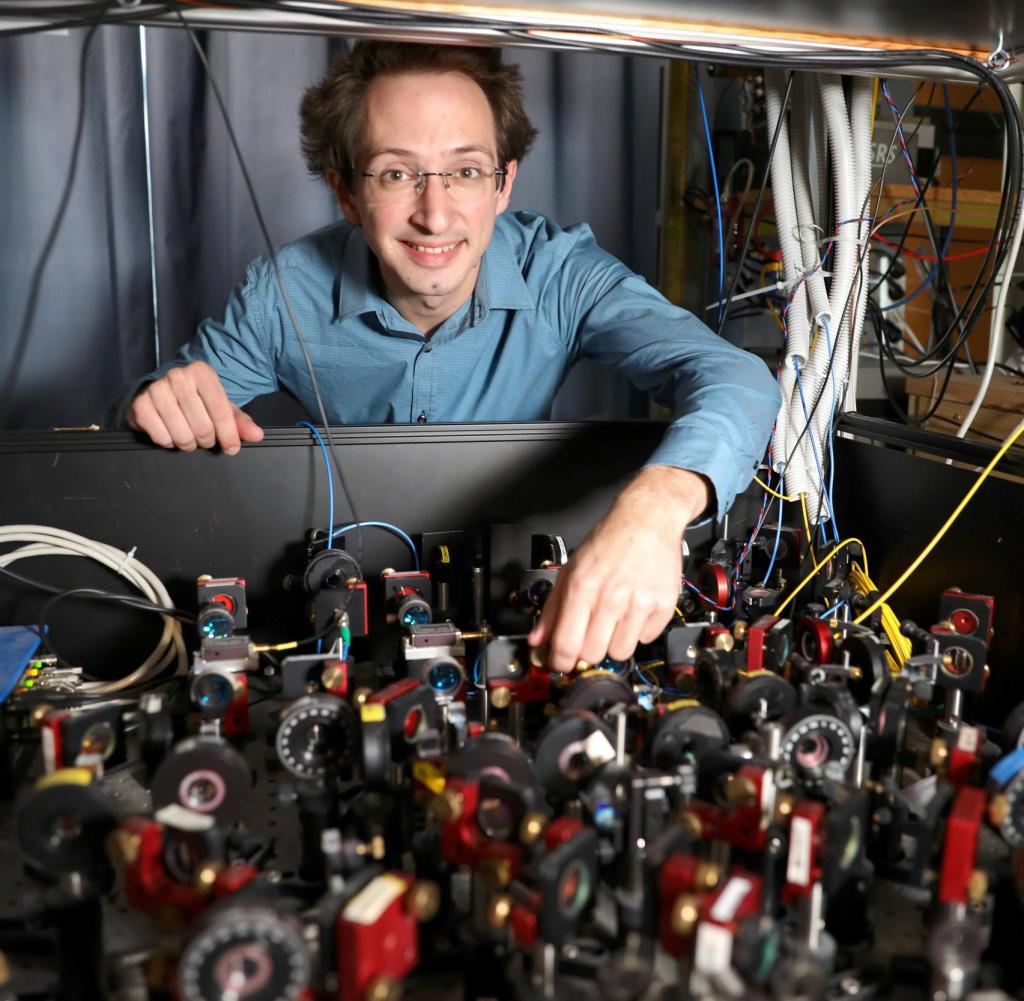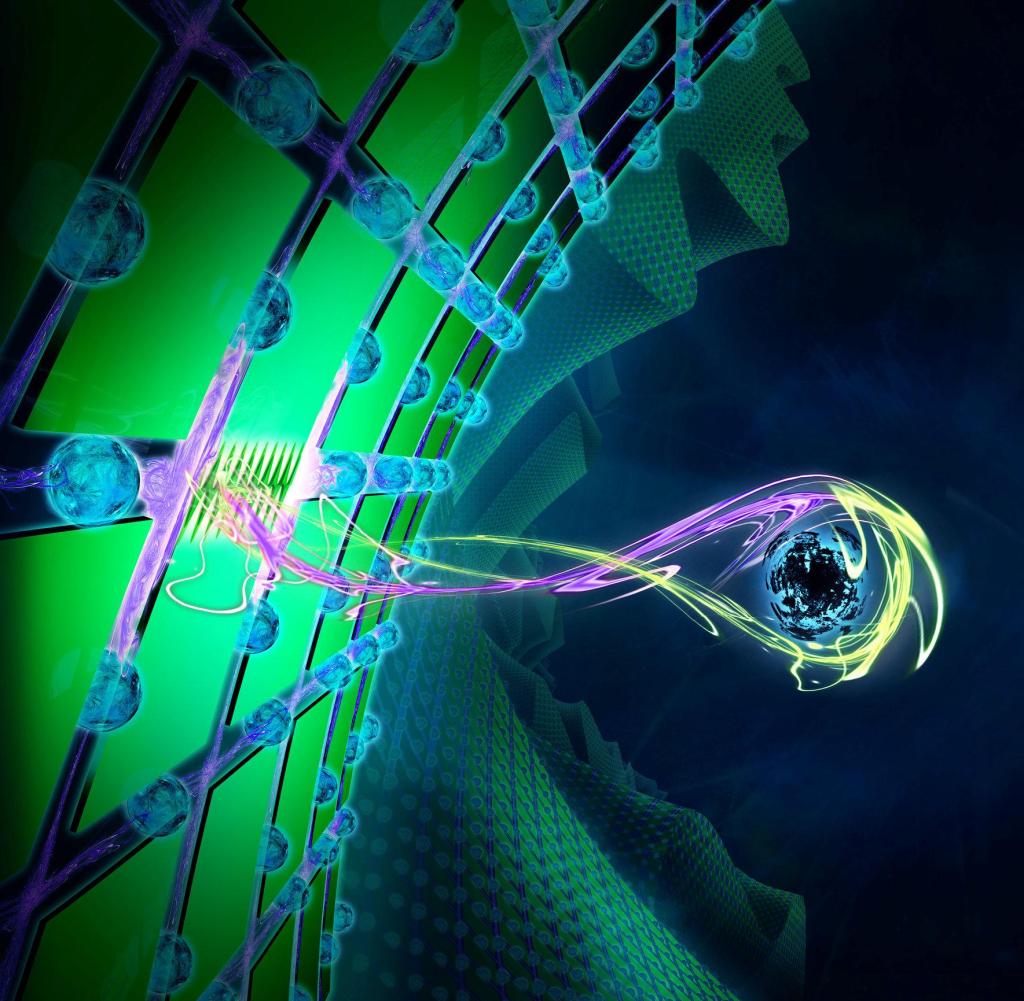

Illustration of a quantum computer that calculates in eight different states
Source: University of Innsbruck
Quantum computers have so far used two physical states to process data. The Innsbruck scientists have discovered a quantum computer that operates with eight quantum states. This increases computing power.
cComputers count using only two numbers – zero and one. The same now applies to almost all technical devices – from cell phones to cars. We live in the digital age and process binary information with bits of data everywhere.
Many experts predict a revolution in data processing from so-called quantum computers. One difference with classical computers is that quantum computers do not work with qubits, i.e. the “zero” and “one” states, but with quantum qubits, also called qbits.
qbit can assume not only two defined states ‘zero’ and ‘one’, but also any states mixed with parts of ‘zero’ and ‘one’. This is technically achieved by quantum systems – for example metal ions with two quantum states.
A qubit plays the same role as a classical bit. It is the smallest possible volume and a measure of the amount of data. There are many ways how to technically perceive two-state quantum systems. But what all the projects have in common is that quantum qubits are generated using two-state systems.
More computing power through more quantum states
On the one hand, this is the simplest option, and on the other hand, it is as similar as possible to the classic digital technology. And one thing is clear from the start: if quantum computers are to play a relevant role in practice, then there must be interfaces between them and classical computers.
However, physical quantum systems can usually assume more than just two states and superimpose them. Scholars University of Innsbruck They are convinced that they can build more powerful quantum computers if they only use more than two quantum states in their “computations”.
“Constraining binary systems deprives these computers of their true potential,” says physicist Martin Ringbauer. He is part of a research team from the University of Innsbruck who has succeeded in building a quantum computer that can fully exploit this potential and thus achieve more computing power with fewer quantum particles. in the magazine”NaturePhysicsThey tell how they did it.
Physicist Martin Ringbauer from the University of Innsbruck
Source: University of Innsbruck
“In the quantum computer in Innsbruck, information is stored in individual trapped calcium atoms, each with eight states, only two of which have been used for the computations so far,” explains Thomas Munz, team leader. To process the data, the researchers use all the states present as called qudits (quantum numbers). The researchers report that the new computation model is optimally compatible with quantum devices. The computation should work with eight quantum states as reliably as working with qubits.
Reliability does not decrease
The most important advantage of using more than two quantum states is that when solving certain tasks, you can get fewer “computing units” – in this case calcium atoms. In addition, many of the envisioned applications of quantum computers to solve problems in physics, chemistry, or materials science are almost naturally modeled for description by qudits.
If you try to rewrite these problems for binary quantum systems, the models often become too complex to work on. “Computation with more than zero and one is not only ideal for quantum computers, but is also more natural for many applications. This approach enables us to exploit the full potential of our quantum computers,” Ringbauer says.
In addition to the applications in the research, experts hope that quantum computers can be used to efficiently solve optimization problems – from controlling traffic flows to improving the efficiency of industrial processes.
“Aha! Ten Minutes of Everyday Knowledge” is WELT’s Knowledge Podcast. Every Tuesday and Thursday we answer daily science questions. Subscribe to the podcast at spotifyAnd the Apple PodcastAnd the DeezerAnd the amazon music Or directly via RSS feed.

“Total coffee aficionado. Travel buff. Music ninja. Bacon nerd. Beeraholic.”












More Stories
Coral Seeding: Artificial Insemination Makes Coral More Heat Tolerant
Fear, Anger, and Denial: How People Respond to Climate Change – Research
LKH Graz: Using radiation to combat heart arrhythmias